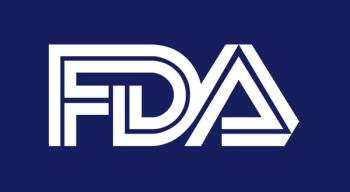
HER2-Positive Breast Cancer
Latest News
Dual HER2 Blockade Alone Yields Worse pCR in Early HER2-Positive Breast Cancer

Pertuzumab Gets Priority Review for Early HER2-Positive Breast Cancer
Latest Videos

CME Content
More News

Low levels of cytotoxic stromal tumor-infiltrating lymphocytes are predictive of benefit derived from antibody- vs small molecule–based drug approaches to HER2-positive metastatic breast cancer.

The FDA Oncologic Drugs Advisory Committee has unanimously voted to recommend approval of the trastuzumab biosimilar MYL-1401O for the treatment of HER2-positive breast cancer.

The FDA has approved neratinib (Nerlynx) for use as extended adjuvant treatment in adult patients with early-stage HER2-positive breast cancer.

T-DM1 administered for 12 weeks with or without endocrine therapy yields good rates of pathologic complete response in women with HER2-positive/hormone receptor–positive breast cancer, according to a new randomized trial.

In this interview we discuss some of the novel therapeutics in development for HER2-amplified breast cancer.

A biosimilar to trastuzumab known as CT-P6 showed equivalent efficacy and similar toxicity to the original agent in patients with HER2-positive breast cancer.

The addition of pertuzumab to trastuzumab and chemotherapy improved invasive disease–free survival in patients with HER2-positive early breast cancer.

Final results from two large phase III trials confirm that the drug-antibody conjugate trastuzumab emtansine improves overall survival over other treatment options in patients with previously treated HER2-positive metastatic breast cancer.

Treatment with metformin may improve outcomes in patients with HER2–positive primary breast cancer and diabetes, according to an analysis of the phase III ALTTO trial.

The 2013 ASCO/CAP updates to HER2 testing guidelines did not result in changes to the rate of HER2 positivity among breast cancer patients.

Trastuzumab plus low-dose radiotherapy does not have a significant effect on left ventricular ejection fraction changes in HER2-positive breast cancer.

Administration of dexrazoxane along with adjuvant chemotherapy was cardioprotective in patients with HER2-positive breast cancer treated with chemotherapy followed by 1 year of trastuzumab maintenance therapy.

The ASCO-CAP guidelines for HER2 gene amplification testing leave some patients at risk for misclassification and inappropriate treatment.

A cost-effectiveness analysis found that 9 weeks of trastuzumab therapy is better than the more standard 12 months in patients with HER2-positive breast cancer, without loss of clinical efficacy.

A phase I trial found that ONT-380 had a lower incidence of certain adverse events associated with this class of agent and notable anti-tumor activity in heavily pretreated metastatic HER2-positive breast cancer patients.

Brain metastases from primary breast cancer tumors often acquire clinically actionable genetic alterations, according to a small study. About one fifth of ERBB2/HER2-negative cases switched to HER2-positivity in the brain metastases.

A higher quantity of stromal tumor-infiltrating lymphocytes (TILs) was associated with better overall survival in patients with advanced HER2-positive breast cancer treated with either pertuzumab or placebo, along with trastuzumab and docetaxel.

The addition of estrogen deprivation to neoadjuvant chemotherapy did not significantly affect pathologic complete response in women with HR-positive, HER2-positive breast cancer.

A biosimilar yielded equivalent response rates to trastuzumab at 24 weeks in a study of women with HER2-positive metastatic breast cancer.

In patients with HER2-positive breast cancer undergoing trastuzumab therapy, the use of an ACE inhibitor or beta-blocker could protect against cardiac toxicity.

Polymorphisms in the FCGR3A gene are correlated with degree of benefit from trastuzumab in women with ERBB2/HER2-positive breast cancer, according to a new analysis.

The antibody-drug conjugate trastuzumab emtansine (T-DM1) showed non-inferior-but not superior-efficacy to trastuzumab plus a taxane in women with advanced HER2-positive breast cancer.

In patients with HER2-positive breast cancer undergoing trastuzumab therapy, elevated troponin I or T before the treatment is associated with an increased risk of trastuzumab-related cardiac dysfunction.

Response to the HER2-targeted therapies lapatinib and trastuzumab are correlated with pathway-level genetic alterations, but not specific gene mutations.

Breast cancer tumors that are HER2-negative can spontaneously flip, with populations of circulating HER2-positive cells, suggesting treatment strategy.






































